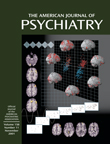To the Editor: In his editorial, Dr. Gabbard wrote, “I have long thought that in training psychiatrists, we make too much of a distinction between psychotherapy and pharmacotherapy. The doctor-patient relationship is inherently psychotherapeutic…. Even when we treat the brain with somatic treatments, we cannot bypass the mind” (p. 3). I agree with this position but believe the best way to convey this message to residents and future generations of psychiatrists is to create an academic environment in which psychotherapy and pharmacotherapy hold equal prestige and both draw financial endorsement, the science of psychotherapy is deemed worthy of pursuit, and psychosocial interventions for the severely mentally ill are again integrated into everyday management.
As I approach the end of my fourth and final year of residency, I can elaborate with authority on psychotropics and side effects, P-450 interactions and insurance transactions. I, like my peers, have been trained in the age of biological remedies: “receptor religion.” I, too, am a believer and feel fortunate to be a part of this revolution in neuroscience. However, I long for more emphasis on and discussion of the science of psychotherapy, which deserves its rightful place next to fluoxetine. We seem so mesmerized by the efficacy of our drugs that we have almost stopped believing that psychotherapy does anything “real” at all.
This trend is best illustrated by the way in which psychotherapy is currently taught in residency training programs. The academic faculty consists largely of those who teach medication management or psychotherapy but rarely both. I do not mean to suggest that those who practice pharmacotherapy do not know how to practice psychotherapy or vice versa but, rather, that a systemic bifurcation between pharmacotherapy and psychotherapy conveys an inaccurate and inappropriate mind-body duality to trainees. Furthermore, those who teach psychotherapy are often community psychiatrists in private practice who act as volunteer clinical faculty through adjunct affiliations with universities. For a young resident with aspirations of an academic career who is nonetheless interested in doing and studying psychotherapy, an obvious conflict arises. If he or she chooses to remain in academia, does he or she give up an interest in psychotherapy in order to be competitive, or does he or she open up a private practice in which psychotherapy is still legitimate although marginalized from the academic environment?
Furthermore, the treatment of schizophrenia and bipolar disorder is so dominated by pharmacotherapy that a whole generation of psychiatrists is being trained to believe that any new symptom in these patients is attributable to drug side effect or lack of drug efficacy. Such patients are, by definition, not referred to the residents’ individual psychotherapy clinic, and, consequently, residents have little opportunity to learn about or address the psychological issues in this population. When I read a decade-old article that describes the benefits of psychotherapy from the point of view of a schizophrenic patient
(1), I was surprised to discover how meaningful and therapeutic the treatment had been for this individual.
Residency training programs should seek to reintegrate psychotherapy and pharmacotherapy, but this goal can be achieved only by reintegrating the teaching of both disciplines within the academic setting, thereby conveying to medical students and residents that both disciplines are of equal importance.

